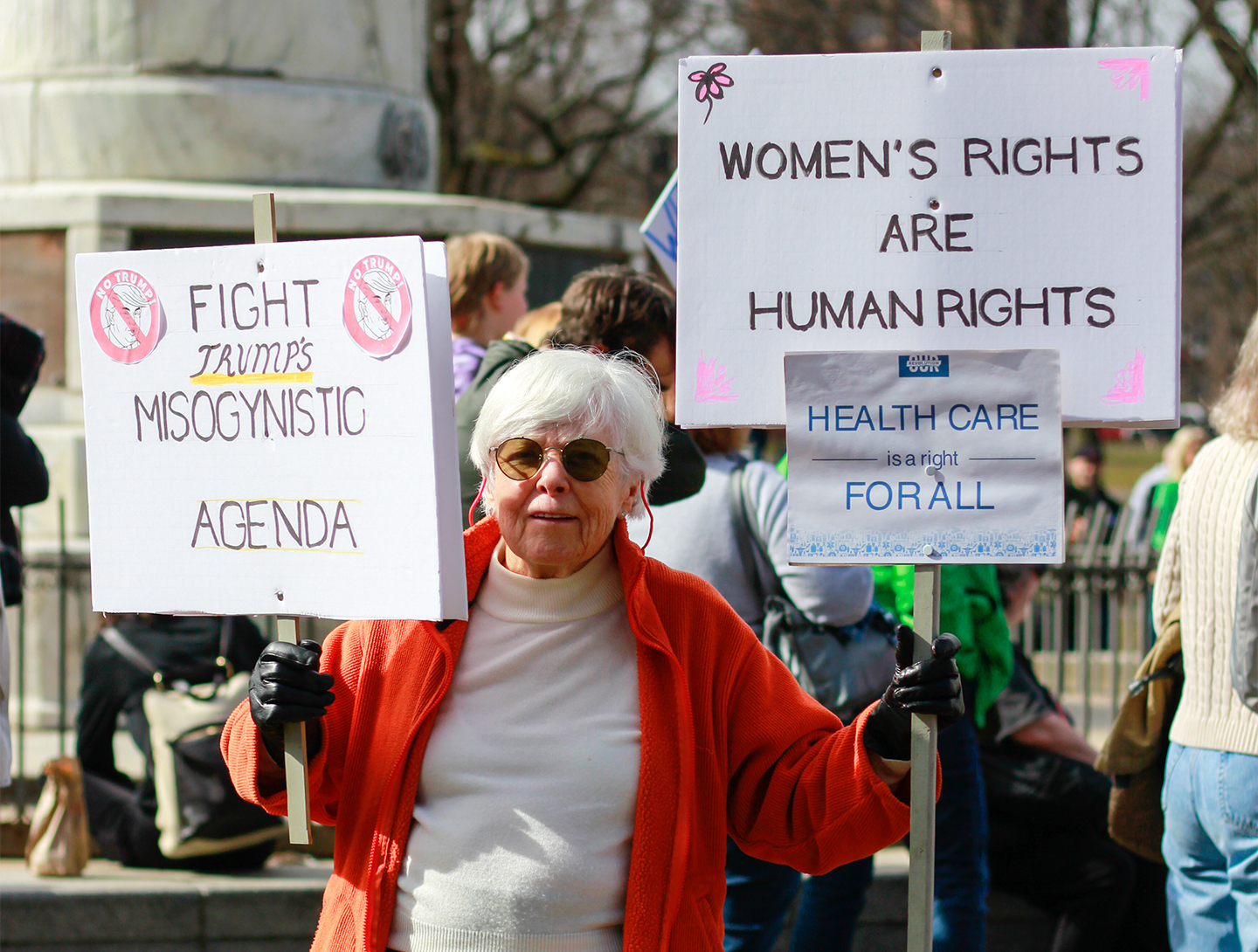
President Donald Trump signed a bill on April 13 allowing states to curb Title X funding to health centers that provide abortions. In response to the move, which opponents see as a political attack on Planned Parenthood, legislators and local women’s health advocates are hoping to reframe the conversation by asking whom Trump’s bill will harm.
The Title X Family Planning Program provides about 4 million people nationwide with preventative health services, including birth control, breast cancer screenings, contraception education and sexually transmitted disease testing. Low-income individuals receive the majority of Title X funding, including those without health insurance and those who don’t qualify for Medicaid, said Susan Yolen, the vice president of Public Policy and Advocacy at Planned Parenthood of Southern New England. Planned Parenthood receives about 25 percent of Title X funding, which is awarded competitively.
Title X does not cover abortive care, but in recent years, the policy has become entangled with the abortion debate. But the range of services Title X provides, and that Planned Parenthood provides, is far broader, Yolen said.
“I think the idea that we’re just an abortion provider is — I don’t want to say it’s a fiction — but it’s something our opponents want to instill in the public dialogue,” Yolen said. “Whereas anyone who has been through our doors knows the scope of our care and knows who we are. What we count most on is the trust of the patients who come through our doors.”
The April 13 bill alone is not likely to affect the Title X network in Connecticut, a state with strong Democratic leadership. But the larger legislative push by the Republican Party to alter the country’s health care system leaves much uncertain for those who constitute the majority of Planned Parenthood’s patient base.
In the Connecticut House of Representatives, a package of women’s health care bills was introduced in January that includes an initiative to preserve Affordable Care Act requirements against cost sharing.
State Rep. Patricia Dillon, D-New Haven, one of the legislators who introduced the package, told the News that a number of the bills are under discussion in the current session. When asked about the future of women’s health issues, Dillon expressed her hope for voter action and popular pressure. Planned Parenthood is an organization with widespread public support, she said, not only in Connecticut but also nationwide.
According to Planned Parenthood’s website and PPSNE’s annual report, clinics in Connecticut and Rhode Island served over 70,000 patients in 2016. About half of PPSNE’s patients are people of color, and about half of its patients pay with Medicaid. Planned Parenthood also provides nonemergency care to undocumented immigrants.
Medicaid is the largest source of reproductive health coverage in the country, the Planned Parenthood website notes. But barriers to access still exist, both locally and federally.
“Not every physician is willing to sign off to deliver care through the Medicaid program; the reimbursement rates are not the best,” Yolen said. “[At Planned Parenthood], we’re happy to do it.”
On a federal level, Medicaid is at the center of the GOP-led initiative to “defund” Planned Parenthood. Since 75 percent of Planned Parenthood’s federal funds come from Medicaid reimbursements, to defund Planned Parenthood would be to deny access to low-income patients, Yolen said. As a result, half of PPSNE’s current patients would no longer be able to receive care at Planned Parenthood.
Alternatively, PPSNE will have to find private sources of funding, a path Yolen hopes the organization will not need to go down.
PPSNE has been working closely with state legislators and the governor’s office to respond to the legislative challenges ahead. Yolen highlighted Senate Bill 586, which aims to bolster access to health care for women and families and possibly compensate for some losses in federal funding.
Molly Greene GRD ’20, a Ph.D. candidate in American Studies and visual artist, expressed hope that voters will mobilize in support of Planned Parenthood.
“I think it’s only been since the election that a broader public has been alerted to the potential precarity of the right to a legal abortion, and I think we’re seeing the beginnings of a new movement in defense of abortion rights,” she said.
Greene added that Planned Parenthood has demonstrated a capacity to overcome many barriers that people seeking healthcare often face at other medical institutions due to their class, race or sexuality.
Planned Parenthood of New Haven is located at 345 Whitney Ave.







